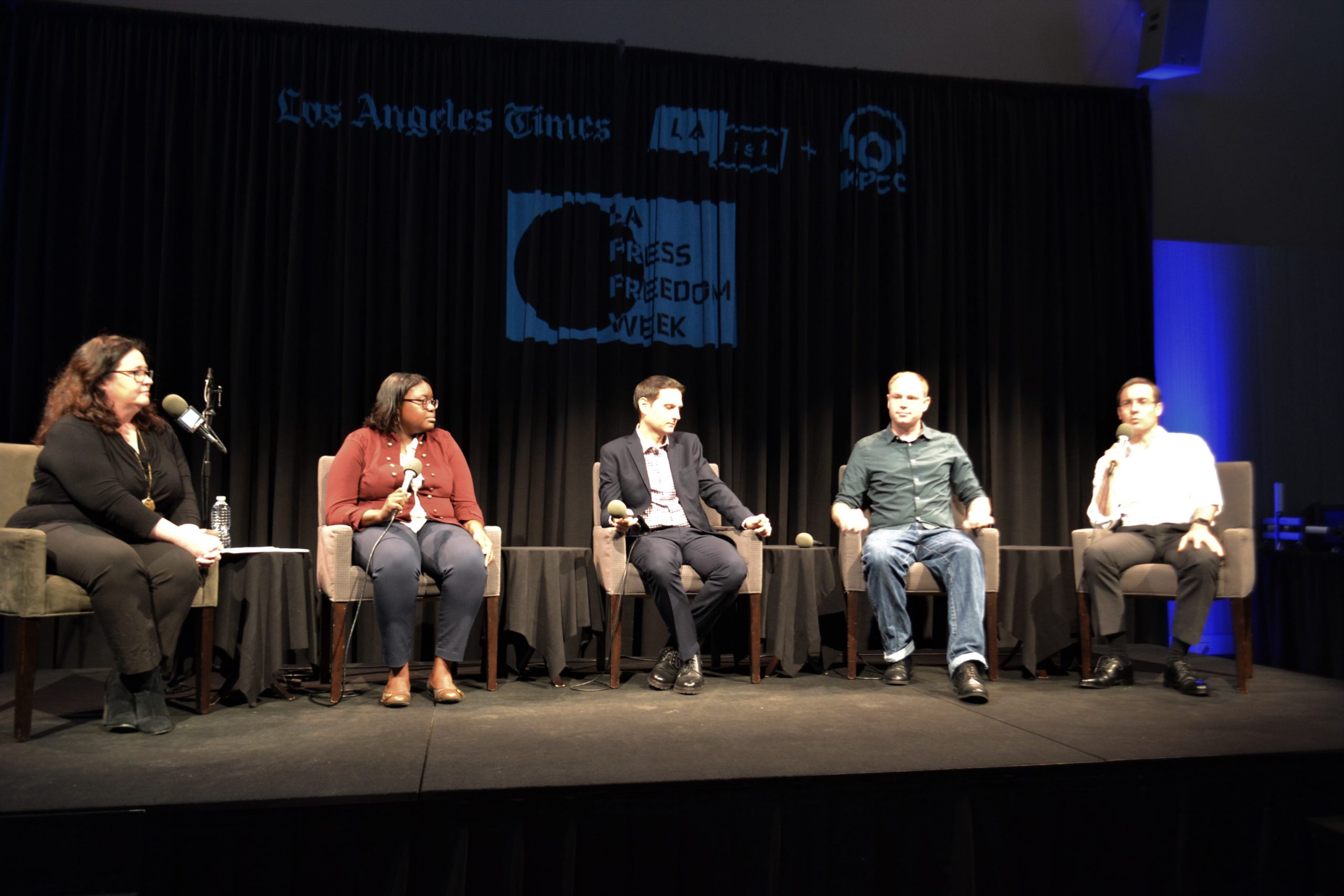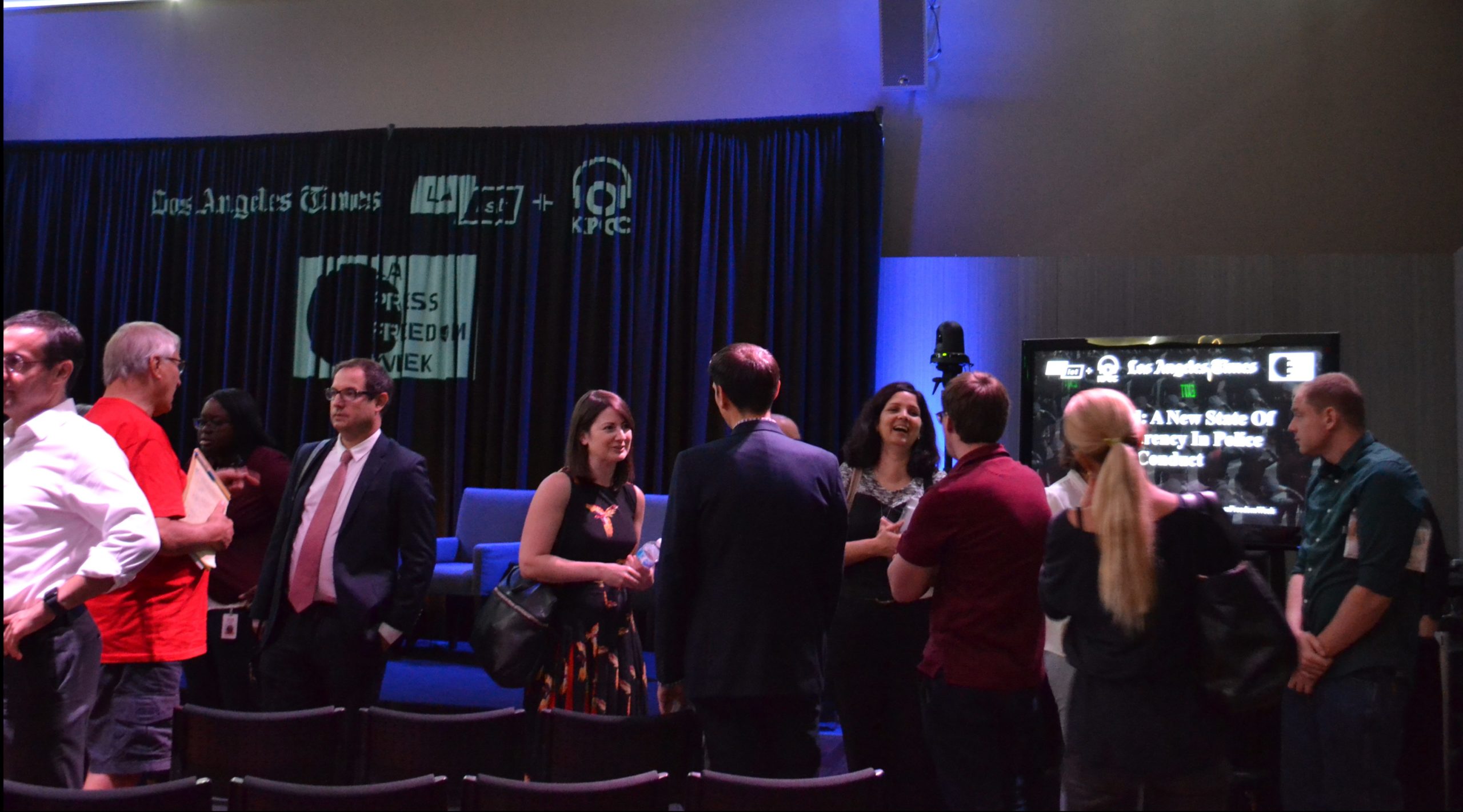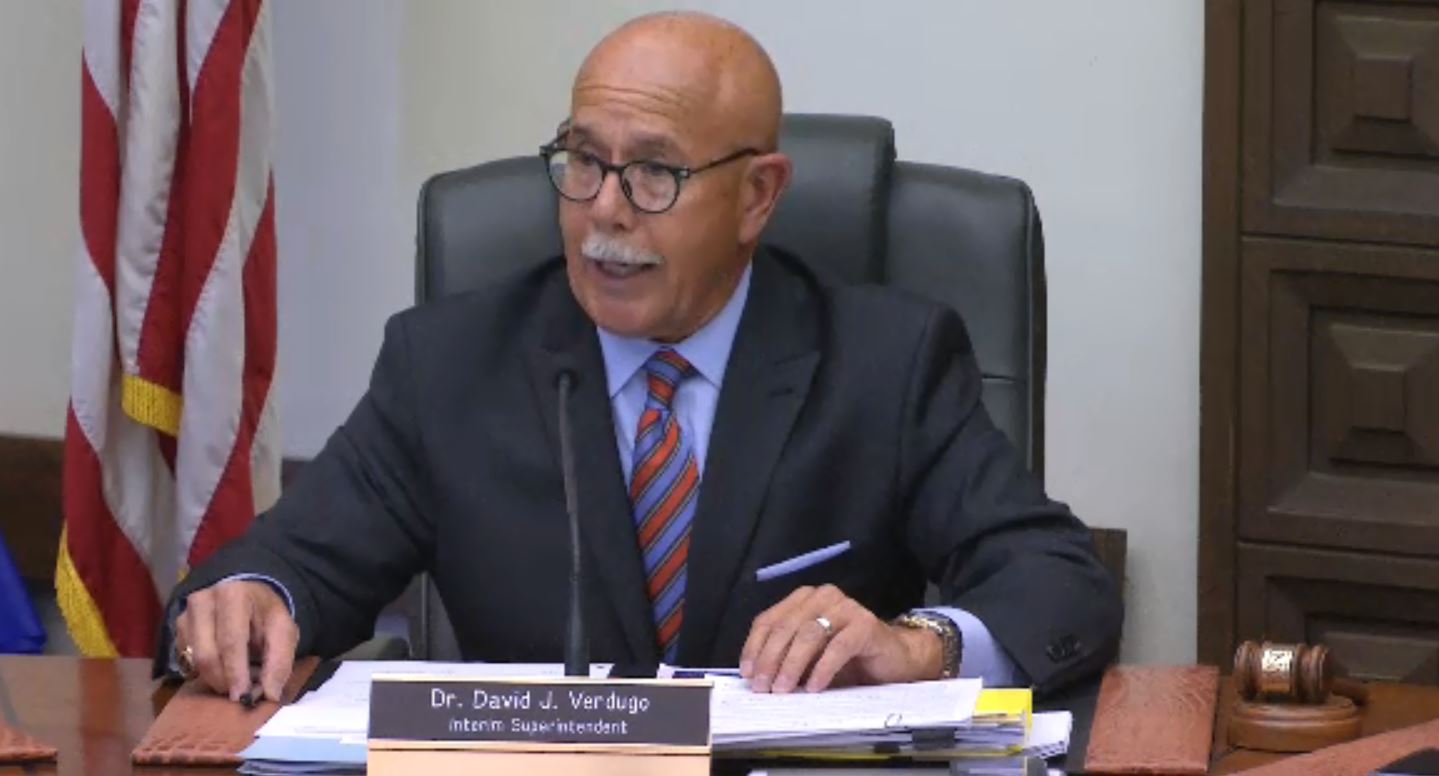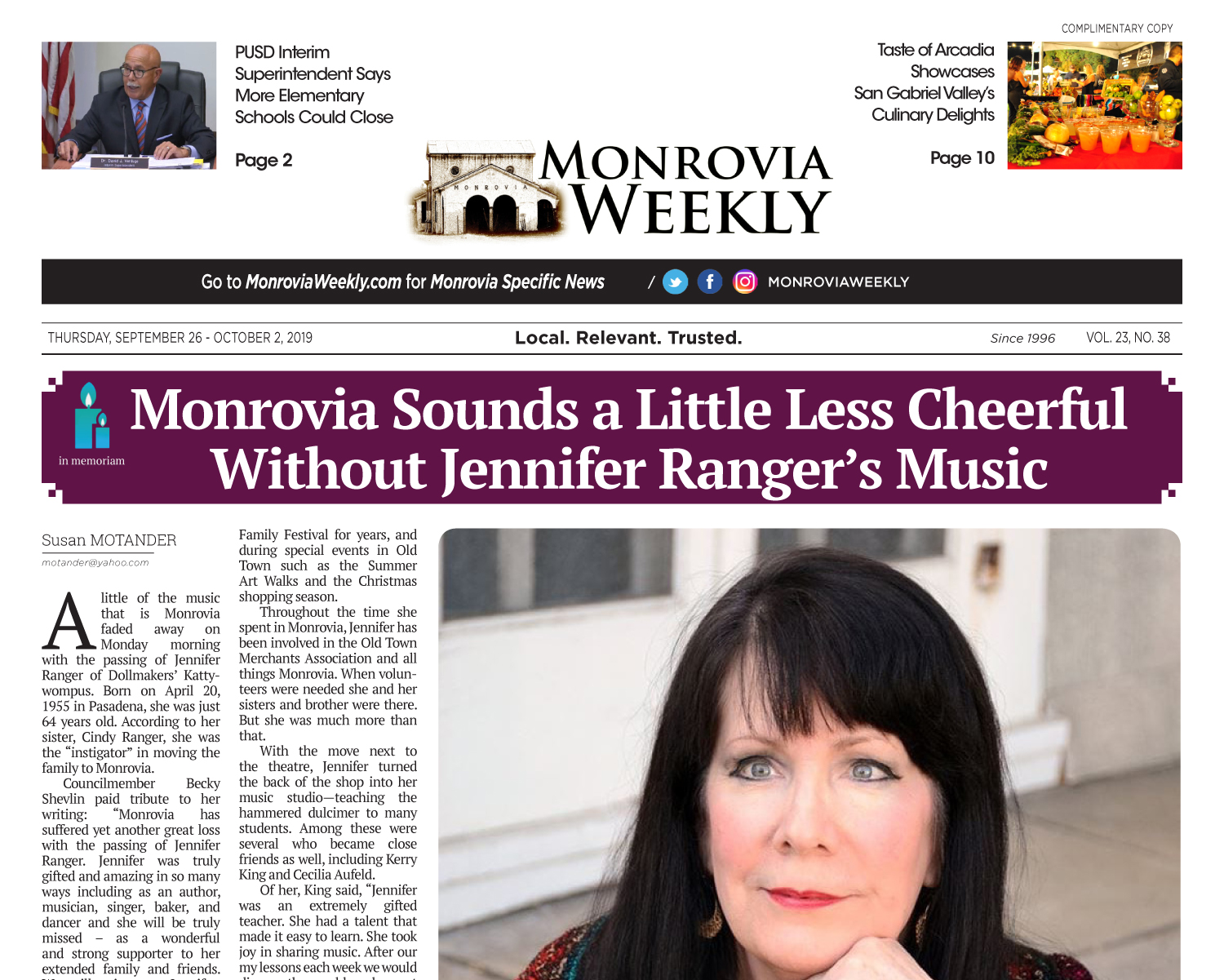
By Alex Cordero
A series of events celebrating L.A. Press Freedom Week included KPCC hosting a panel discussion with local journalists about new state law SB-1421 that releases vast information on police conduct—including misconduct and deadly use of force.
The talking group consisted of representatives from KPCC, LAist, KQED News, The Long Beach Post and the Los Angeles Times; all played big roles in advocating for SB-1421 and are now collectively working together in requesting an obtaining police records.
It didn’t take long for news organizations to realize that in order to obtain access to the massive new release of information on police conduct, it would be incredibly time consuming and costly. The decision was clear—working together was the only solution.
The California Reporting Project is a statewide journalism coalition of more than 40 newsrooms that have already been reporting on police conduct in their respective communities based on the records.
Despite collaborative efforts amongst journalists, coalition members are experiencing a long list of challenges in requesting and receiving the information in a timely manner throughout the state, and the retaliation of peace officers’ unions highly opposing the bill.
“We are seeing wide variance in compliance with the law, so in the City of Los Angeles we are seeing the police department producing some records, putting them up online, we are seeing the LA County Sheriff Department not producing a lot them.” said Jeff Glasser, general counsel of the L.A. Times and San Diego Union-Tribune who was part of the panel discussion alongside Katie Townsend, the Reporters Committee’s legal director.
“The [peace officers’] unions are fighting like heck to stop this bill from being effective, they filed dozens of lawsuits the day the law became effective and in the weeks afterwards saying that it did not apply to records prior to 2019,” said Glasser.
According to Glasser, the majority of the lawsuits were overturned by state federal courts ruling that the bill does apply to all records. However, Glasser also informed the audience that there is still one case that remains open regarding an issue in Ventura County.
“The purpose of the statue is to benefit the public, and these government agencies should be complying with what benefits the public,” said Townsend.
The challenges that have emerged with the passing of SB-1421 were among the hot topics on the panel moderated by managing editor at KPCC, Megan Garvey.
Dana Amihere, the data editor of KPCC, was among the second group of panelists consisting of journalists who were part of the starting process for The California Reporting Project.
“She [Dana] has been integral in helping us figure out once we acquire these records from all these news organizations how are we actually going to find them and use them,” said Garvey as she introduced Amihere to the audience.
Amihere has been responsible for submitting, keeping track of the status on requests and following up with the agencies on delayed requests etc., throughout this massive project.
The coalition is discovering that all these peace officer agencies have their own filing and record maintenance system. Some agencies are very organized and professional in adhering with releasing the information within their turn-around time but many agencies are very difficult to work with often ending up in also obtaining illegible records.
“The reality is that we got different departments using everything from a chisel and a tablet to machine readable documents which are rare. We’ve actually gotten spreadsheets from some departments,” said Amihere when she was asked to share her process for obtaining records.
Per Amihere, records all differ from agency to agency and although in general most of the records provide similar information the forms may be different, the fields used on the records vary and the majority of the records cannot be easily converted to digital records and uploaded to the website.
“It’s been quite a journey and quite a struggle just to get the basic information,” said Amihere.
She also disclosed the outstanding number of records requested, “Today we got over 13 hundred records requested and we’ve gotten back documents on about 480 of them.”
She goes on to share that the biggest challenge for her has been deciphering the information on the police record once received. Some records are illegible, some obtain on-going pages of police conduct that really don’t describe any valuable information and having to sort all the information and determine how to categorize the documents have also presented their own set of challenges.
In the end the panel closed with optimistic notes about perhaps suggesting the implementation of a unified state agency records system and having one universal form to submit a request for a police conduct record. For more information on how you can submit a request to obtain a police conduct report in your area please visit aclusocal.org/en/know-your-rights/access-ca-police-records.






